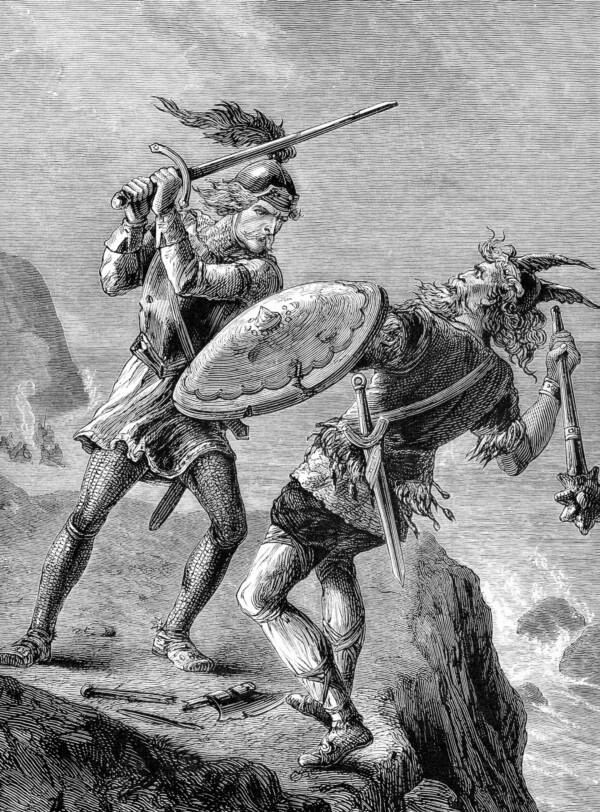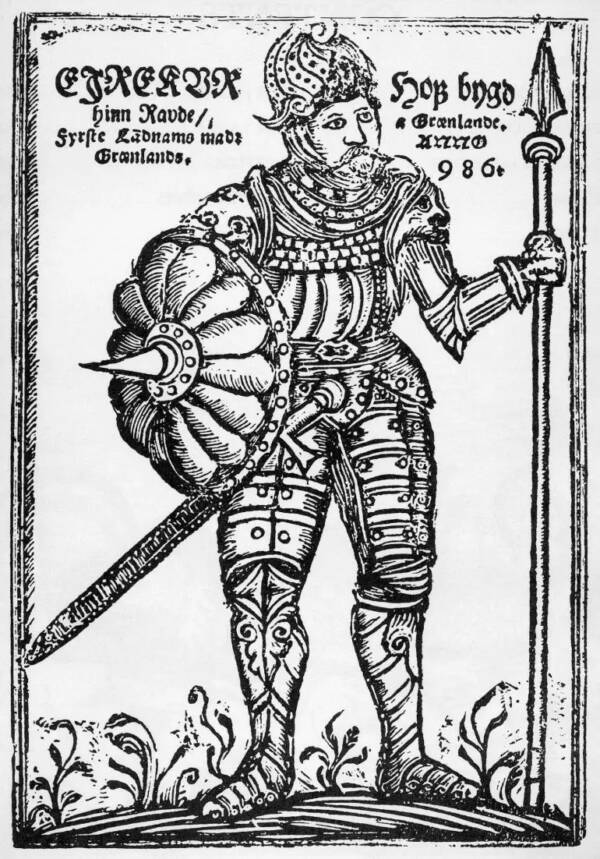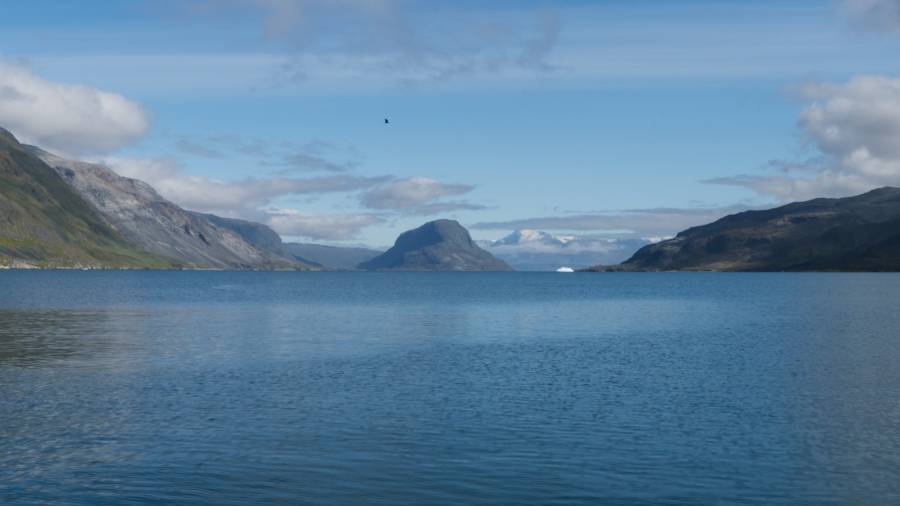Erik the Red is a legendary figure from Viking tales and one of the most influential Nordic explorers in history.
Remove ads and support us with a membership
He is perhaps best known as the father of Viking adventurer Leif Erikson, as well as for naming Greenland and founding the first European settlement on the island. However, it’s not common knowledge that it was Erik the Red’s fiery temper that took him to Greenland in the first place.
The Viking was banished from Iceland after initiating a brawl that left two men dead, so he decided to sail west to explore. After exploring the vast island for several years, he returned to Iceland and gathered a group of men and women to establish a settlement in the uninhabited territory, which grew to an estimated population of 5,000 at its peak.
This is the daring story of Erik the Red, his banishment from Iceland, and the founding of Greenland.
Remove ads and support us with a membership
Erik The Red’s Early Life And His Move To Iceland
Much of what we know about Erik the Red comes from Nordic and Icelandic sagas. Also known as Erik Thorvaldsson, the Viking made a name for himself due to his bad temper, his penchant for exploring, and his fiery red hair.
According to the stories chronicling his life, Erik Thorvaldsson was born in Norway around 950 C.E. When he was 10 years old, his father, Thorvald, relocated the family to western Iceland.
However, Thorvald didn’t leave Norway of his own accord — he was found guilty of manslaughter and faced banishment. This would eventually become something of a trend in the family.
It was in this untamed land that Erik the Red truly grew into his father’s son.
Remove ads and support us with a membership
Bettmann/Getty ImagesErik the Red killing an Icelandic chief.
According to Biography, Erik the Red eventually married a wealthy woman named Thjodhild Jörundsdóttir and inherited several servants, or thralls. He became wealthy, fearsome, and a leader in his community.
That is, until a series of unfortunate events caused Erik’s temper to flare.
Remove ads and support us with a membership
The Murder That Led To Erik The Red’s Banishment From Iceland
Around 980, a group of Erik’s thralls accidentally triggered a landslide while working. Unfortunately, the disaster destroyed the house of Erik’s neighbor, Valthjof. In response, Valthjof’s kinsman, Eyiolf the Foul, killed Erik’s thralls.
Naturally, this angered Erik. But rather than wait for community leaders to mete out justice, he took the law into his own hands, killing Eyiolf and a clan “enforcer” named Holmgang-Hrafn. Following the killings, Eyiolf’s kinsmen demanded that Erik and his family be banished from the village.
Erik relocated to another part of Iceland, but he could not escape his neighborly woes.

Bettmann/Getty ImagesA 1688 illustration of Erik the Red from Arngrin Jonas’ Gronlandia.
Remove ads and support us with a membership
Around 982, Erik loaned some wooden beams called setstokkr to a fellow settler named Thorgest. These beams held a mystical significance in the Norse pagan religion, so when Erik wanted them back and Thorgest refused, Erik took them by force.
Worried that Thorgest would respond with violence, Erik opted to handle the situation preemptively. He and his men ambushed Thorgest and his clan, and two of Thorgest’s sons died in the midst of the melee.
Erik the Red was found guilty of manslaughter and was once again banished, this time for a period of three years. With his punishment looming in front of him, the Viking decided to spend the time exploring an untamed island of which he’d heard rumors.
Remove ads and support us with a membership
Inside The Founding And Settlement Of Greenland
Like his father before him, Erik the Red headed west after his banishment. About 100 years earlier, a Norwegian sailor by the name of Gunnbjörn Ulfsson had reportedly discovered a large land mass to the west of Iceland, and Erik was determined to find it. Fortunately, he was an experienced navigator, because the journey spanned roughly 900 nautical miles across the open ocean.
But in 983, Erik the Red reached his destination, landing at a fjord that he dubbed Eriksfjord, though it’s now known as Tunulliarfik.
From there, the intrepid explorer mapped Greenland to the west and north for two years. He found the landscape suitable for raising livestock, and despite its cold and arid climate he decided to call the place Greenland as a way to entice more settlers to come to the area.
In 985, his banishment ended and Erik the Red returned to Iceland, where he convinced a party of roughly 400 people to return to Greenland with him. He set off with 25 ships, but only 14 of them completed the journey. According to The Mariners’ Museum in Norfolk, Virginia, the settlers brought horses, cows, and oxen and established two colonies: the Eastern Settlement and the Western Settlement.
Remove ads and support us with a membership
Wikimedia CommonsTunulliarfik Fjord in southern Greenland, where Erik the Red landed around 983.
Erik the Red lived like a king in Greenland, where he raised four children: sons Leif, Thorvald, and Thorstein and daughter Freydís. Freydís inherited her father’s temper and became a fearsome warrior.
Leif Erikson, meanwhile, became the first European to see the New World when he and his men landed in Newfoundland on the eastern coast of Canada sometime in the early 1000s, nearly 500 years before Christopher Columbus.
Of course, Leif Erikson was able to sail to Canada thanks to his father’s temper that landed the family in Greenland in the first place.
Remove ads and support us with a membership
Despite his adventurous, combat-filled life, Erik the Red’s story came to a rather unceremonious end. Legend says that he died shortly after the turn of the millennium — and very likely as a result of injuries he sustained after falling off his horse.
Still, without Erik the Red’s murderous rampages, Nordic history may have turned out quite differently.
After learning about famed Viking explorer Erik the Red, check out these facts about Viking history. Then, read about the Vikings’ all-powerful Ulfberht swords.